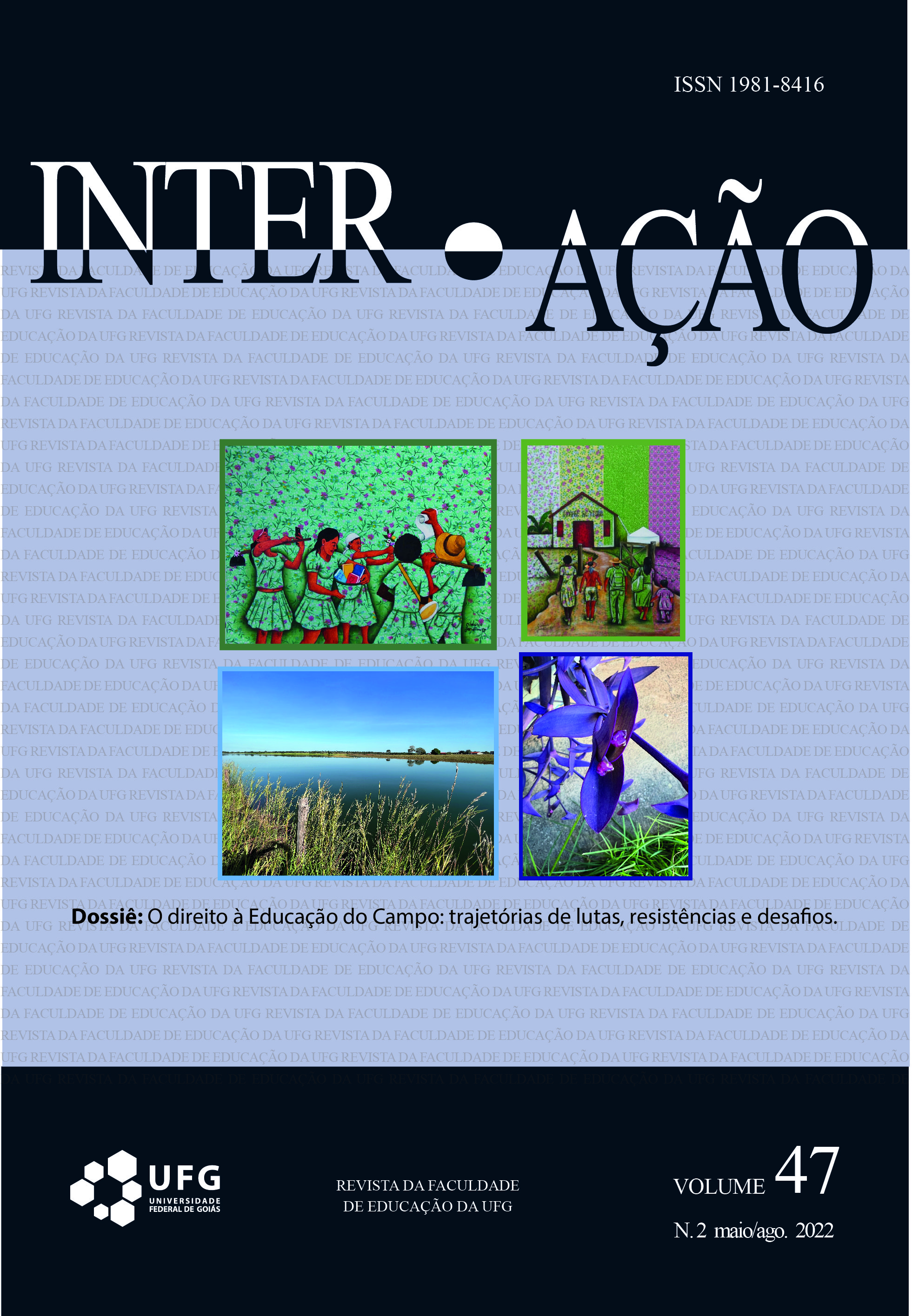O PROGRAMA RESIDÊNCIA PEDAGÓGICA E A FORMAÇÃO INICIAL DE PROFESSORES: REFLEXÕES A PARTIR DE UMA PROPOSTA CONTRA-HEGEMÔNICA NA EDUCAÇÃO DO CAMPO
DOI :
https://doi.org/10.5216/ia.v47i2.72031Résumé
Este artigo tem por objetivo refletir sobre as contradições do Programa Residência Pedagógica (RP) em meio à epistemologia da prática imposta pelo Edital CAPES Nº 06/2018, bem como analisar a Licenciatura em Educação do Campo da Universidade Federal do Pará, Campus do Tocantins/Cametá, como uma política de formação na perspectiva contra-hegemônica. A metodologia se ancorou em estudos bibliográficos, documentais e pesquisa de campo. Os resultados apontaram que a vivência efetiva dos estudantes em processo de formação, do curso em análise, procurou formá-los a fim de atuar nas escolas do campo, implementando um currículo de perspectiva interdisciplinar, centrado na vida e no trabalho, em que os conhecimentos socioculturais e científicos estejam em permanente diálogo.
PALAVRAS-CHAVE: Política Educacional. Formação Docente. Escola do Campo. Ensino Superior.
Téléchargements
Téléchargements
Publié-e
Comment citer
Numéro
Rubrique
Licence
© Cleiciane do Rosário Moraes Souza, Hellen do Socorro de Araújo Silva, Tiago Corrêa Saboia 2022

Cette œuvre est sous licence Creative Commons Attribution - Pas d'Utilisation Commerciale 4.0 International.
A Inter-Ação utiliza como base para transferência de direitos a licença Creative Commons Attribution 4.0 para periódicos de acesso aberto (Open Archives Iniciative - OAI). Por acesso aberto entende-se a disponibilização gratuita na Internet, para que os usuários possam ler, baixar, copiar, distribuir, imprimir, pesquisar ou referenciar o texto integral dos documentos, processá-los para indexação, utilizá-los como dados de entrada de programas para softwares, ou usá-los para qualquer outro propósito legal, sem barreira financeira, legal ou técnica.
Autores que publicam neste periódico concordam com os seguintes termos:
1) Autores mantém os direitos autorais e concedem à revista o direito de primeira publicação, com o trabalho simultaneamente licenciado sob a Licença Creative Commons Attribution que permite o compartilhamento do trabalho com reconhecimento da autoria e publicação inicial nesta revista.
2) Autores têm autorização para assumir contratos adicionais separadamente, para distribuição não-exclusiva da versão do trabalho publicada nesta revista (ex.: publicar em repositório institucional ou como capítulo de livro), com reconhecimento de autoria e publicação inicial nesta revista.
3) Autores têm permissão e são estimulados a publicar e distribuir seu trabalho online (ex.: em repositórios institucionais ou na sua página pessoal) a qualquer ponto antes ou durante o processo editorial, já que isso pode gerar alterações produtivas, bem como aumentar o impacto e a citação do trabalho publicado.















